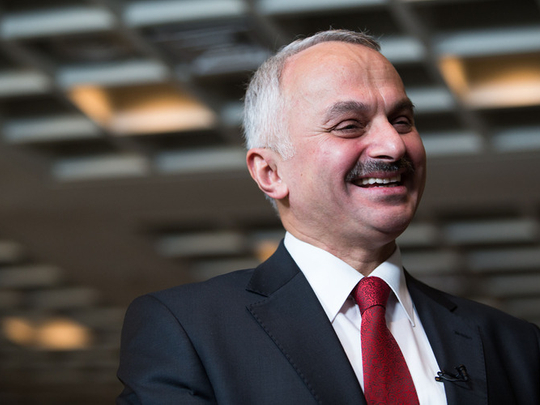
Dublin: Turkish Airlines’ chief executive expects his country’s tourism sector to rebound this summer and continue to strengthen through the rest of 2016.
Foreign visitors to Turkey have fallen for nine consecutive months through April, according to government data, as terror attacks by Daesh and Kurdish militants wreak havoc on its $32 billion tourism sector.
Turkey will start to see more visitors from July and August when the “real summer” starts, Turkish Airlines chief executive Temel Kotil told Gulf News in Dublin late on Wednesday on the eve of the International Air Transport Association (IATA) annual meet in the Irish capital.
May through to August is Turkey’s peak tourism season when many Europeans head to the country’s southern beaches.
Turkish Airlines reported a 1.24 billion liras ($421 million) first quarter net loss in May in what was the partially state-owned carrier’s worst quarter performance since at least 1999. The airline blamed the loss on a nearly 3 per cent drop in the number of seats filled and a fall in revenues as it sold airfares for less though carried 10 per cent more passengers.
Kotil expects Turkish Airlines will sell fares for “around” two to three per cent less this year than in it did in 2015 as the weak Turkish market puts pressure on margins. The airline is targeting to carry 72 million passengers.
“By the end of the year we will have a good profit,” Kotil said.
Terror attacks in Brussels and Paris have also had its affect as passengers on popular routes to Europe from East Asia rethink their travel plans.
“The biggest issue in the industry is security and also this terrorist effect. This is valid to everybody [because] after Brussels we learnt [that] this is not limited to Turkey,” Kotil said.
Confidence in Turkey’s tourism sector has been battered by security fears, tensions with Russia and also concerns over President Recep Tayyip Erdoğan’s increasingly authoritarian rule.
In April, foreign arrivals to Turkey fell by 28.07, its largest year-on-year drop in 17 years, according to government data. Russian visitors, once one of Turkey’s largest source markets, have all but disappeared, falling by nearly 80 per cent in April. Russian visitors started decreasing last year when Turkey shot down a Russian fighter jet. The number of German visitors fell by over a third.
Still, Kotil said forward bookings beyond summer are “okay” and showing signs of a rebounding market.
“This kind of thing is so temporary in Turkey because Turkey is so active” in the global economy, he said.
In the meantime, Turkish Airlines is focusing on capturing more transit passengers from European hubs London, Paris, Frankfurt, Rome and Vienna to make up for the loss in those travelling to and from Turkey, Kotil said whilst adding that both Iran and Ukraine are “booming.”
As the airline targets more transit passengers, its usual 50-50 split of passengers changing planes but not staying in Turkey and those arriving and departing the country change to 60-40 this year as the airline, he said.
The airline also wants to double its frequencies to its 49 destinations in Africa, including starting twice daily flights to Addis Ababa in Ethiopia, Mogadishu in Somalia and Khartoum in Sudan.
“Subsaharan Africa is the future of Turkish Airlines,” Kotil said.
Turkish Airlines has entered into “early stage” negotiations with Ethiopian Airlines to share resources and revenue on routes between Ethiopia and Turkey. Negotiations on Polish routes with LOT Polish Airlines are also underway, Kotil said, while the airline is open to a similar arrangement with Iran’s national carrier Iran Air.
“We are very keen of doing many route based joint ventures.”












